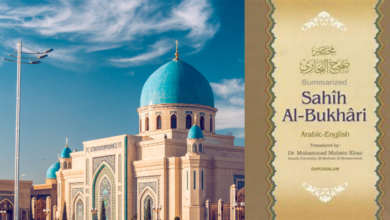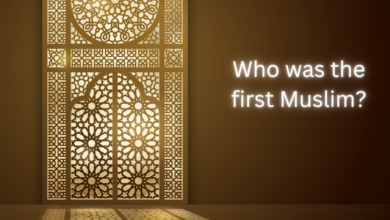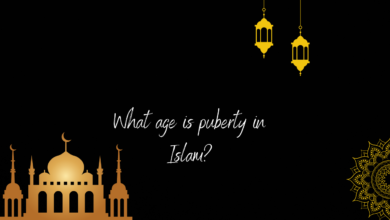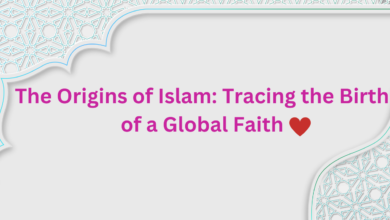
What is the Holy Book of Islam?
The Holy Book of Islam is called the Quran (also spelled as Qur’an or Koran). It is the central religious text of Islam, believed to be the literal word of God as revealed to the Prophet Muhammad.

Introduction
Islam, one of the world’s major religions, is known for its rich history, diverse culture, and deeply ingrained spiritual beliefs. At the heart of Islamic faith lies a sacred text of unparalleled significance, the Quran. In this article, we will delve into the Quran, exploring its origins, significance, and its role in the lives of Muslims worldwide.
The Quran: The Holy Book of Islam
The Quran, also spelled as Qur’an or Koran, is the central religious text of Islam. It is considered by Muslims to be the literal word of God as revealed to the Prophet Muhammad over a period of approximately 23 years. This divine revelation began in the year 610 CE when Muhammad, at the age of 40, received the first verses of the Quran from the angel Gabriel while meditating in a cave near Mecca, in present-day Saudi Arabia.
The Quran consists of 114 chapters, known as Surahs, which vary in length. These Surahs contain over 6,000 verses, known as Ayahs, which cover a wide range of topics, including theology, morality, guidance for personal conduct, and legal principles. The Quran addresses matters of faith, worship, social justice, and offers narratives of past prophets and communities as lessons for believers.
Linguistic Miracle
One of the most remarkable aspects of the Quran is its linguistic and literary excellence. Muslims believe that the Quran’s Arabic text is unparalleled in its eloquence, clarity, and depth. Many consider it a linguistic miracle, believing that no human could have authored such a text. Its unique style has inspired countless poets, scholars, and writers throughout history.
In fact, the Quran itself challenges people to produce a verse like it, a task considered impossible by believers. This challenge, known as the “Inimitability of the Quran” or “I’jaz al-Quran,” remains unmet to this day.
Also Check
- Patience of prophet Muhammad (PBUH)
- Ethics in Islam
- Who were the grandsons of Prophet Muhammad?
- What conditions were laid between the Muslims and the infidels on the occasion of peace at Hudaybiyah?
- Why did Prophet Muhammad like cats?
Religious Significance
For Muslims, the Quran holds a central place in their faith and daily lives. It serves as the ultimate source of guidance, providing answers to questions of ethics, morality, and spirituality. Muslims turn to the Quran for instruction on how to lead a righteous life, how to worship, and how to interact with others.
The Quran also plays a pivotal role in Islamic worship. It is recited during the five daily prayers, with portions of it recited during each of these prayers. Muslims are encouraged to read and reflect upon the Quran regularly, and its verses are often memorized as an act of devotion.
Additionally, the Quran serves as the foundation for Islamic jurisprudence, known as Sharia. Islamic scholars use the Quran as a primary source when deriving legal rulings and principles, supplemented by the Hadith (the sayings and actions of the Prophet Muhammad) and consensus among scholars.
Universal Message
While the Quran is central to the lives of Muslims, it is not exclusively for Muslims. It is regarded as a universal message from God, intended for all of humanity. The Quran addresses people of all backgrounds and faiths, inviting them to reflect on the Oneness of God (Tawhid), the importance of moral conduct, and the consequences of one’s actions in the Hereafter.
Conclusion
The Quran is the Holy Book of Islam, revered by over a billion Muslims worldwide. Its spiritual significance, linguistic excellence, and universal message make it a source of inspiration and guidance not only for Muslims but for anyone seeking to understand Islam and its teachings. It serves as a timeless testament to the faith, dedication, and spiritual insight of those who have embraced it throughout history, shaping the lives of countless individuals and entire societies.

(FAQs) about the Holy Book of Islam, which is the Quran:
What is the Holy Book of Islam?
The Holy Book of Islam is called the Quran (also spelled as Qur’an or Koran). It is the central religious text of Islam, believed to be the literal word of God as revealed to the Prophet Muhammad.
How is the Quran different from other religious texts?
The Quran is distinct in that Muslims believe it to be the unaltered and final revelation from God. It is considered the most important source of guidance for Muslims and is not seen as a work of human authorship.
Who is the author of the Quran?
Muslims believe that the Quran’s author is God (Allah). They consider it a divine revelation given to the Prophet Muhammad over a period of approximately 23 years.
What language is the Quran written in?
The Quran was originally revealed in Classical Arabic. It remains in its original language, and many Muslims around the world learn to read and recite it in Arabic, even if it’s not their native language.
How is the Quran structured?
The Quran is divided into chapters called “Surahs,” and each Surah is composed of verses known as “Ayahs.” There are 114 Surahs in total, with varying lengths.
What topics does the Quran cover?
The Quran addresses a wide range of topics, including theology, morality, guidance for personal conduct, legal principles (Sharia), stories of previous prophets, and eschatology (the study of the end times).
How do Muslims view the Quran?
Muslims regard the Quran with the utmost reverence and respect. They believe it to be a source of spiritual guidance, law, and a book that provides answers to life’s questions.
Is the Quran available in translations?
Yes, the Quran has been translated into many languages to make it accessible to non-Arabic speakers. However, Muslims still consider the Arabic text as the authentic version, and translations are often accompanied by the original Arabic for reference.
Are there any specific rules for handling the Quran?
Yes, Muslims are expected to treat the Quran with great respect. It should be kept in a clean place, handled with clean hands, and not placed on the floor or near impure objects. Recitation is done with a sense of reverence.
Can non-Muslims read the Quran?
Yes, non-Muslims are welcome to read the Quran to gain a better understanding of Islam and its teachings. Many translations and commentaries are available to help non-Muslims explore its content.






